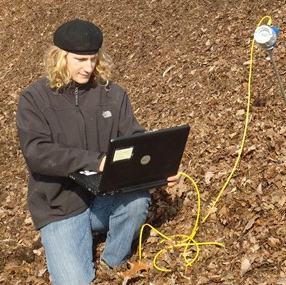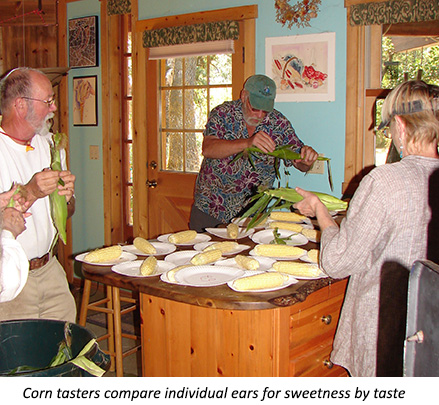Deploying microbes as a seed treatment for protection against soil-borne plant pathogens
 Plant diseases, especially those caused by soil-borne seed infecting pathogens, pose a serious threat to the production of both greenhouse and field crops. Conventional farming operations often use fumigants and chemical seed treatments, which can be harmful to human health and the environment, for controlling seed and seedling pathogens.
Plant diseases, especially those caused by soil-borne seed infecting pathogens, pose a serious threat to the production of both greenhouse and field crops. Conventional farming operations often use fumigants and chemical seed treatments, which can be harmful to human health and the environment, for controlling seed and seedling pathogens.

 Very little sweet corn grown commercially today is open pollinated. Farmers who wish to save their own seed have few if any good choices of varieties to grow. And the hybrids of today have been developed for conditions that are different from those found on most organic farms, as they were selected to rely on fungicides and pesticides, and to effectively utilize soluble synthetic fertilizers in large quantities.
Very little sweet corn grown commercially today is open pollinated. Farmers who wish to save their own seed have few if any good choices of varieties to grow. And the hybrids of today have been developed for conditions that are different from those found on most organic farms, as they were selected to rely on fungicides and pesticides, and to effectively utilize soluble synthetic fertilizers in large quantities.

